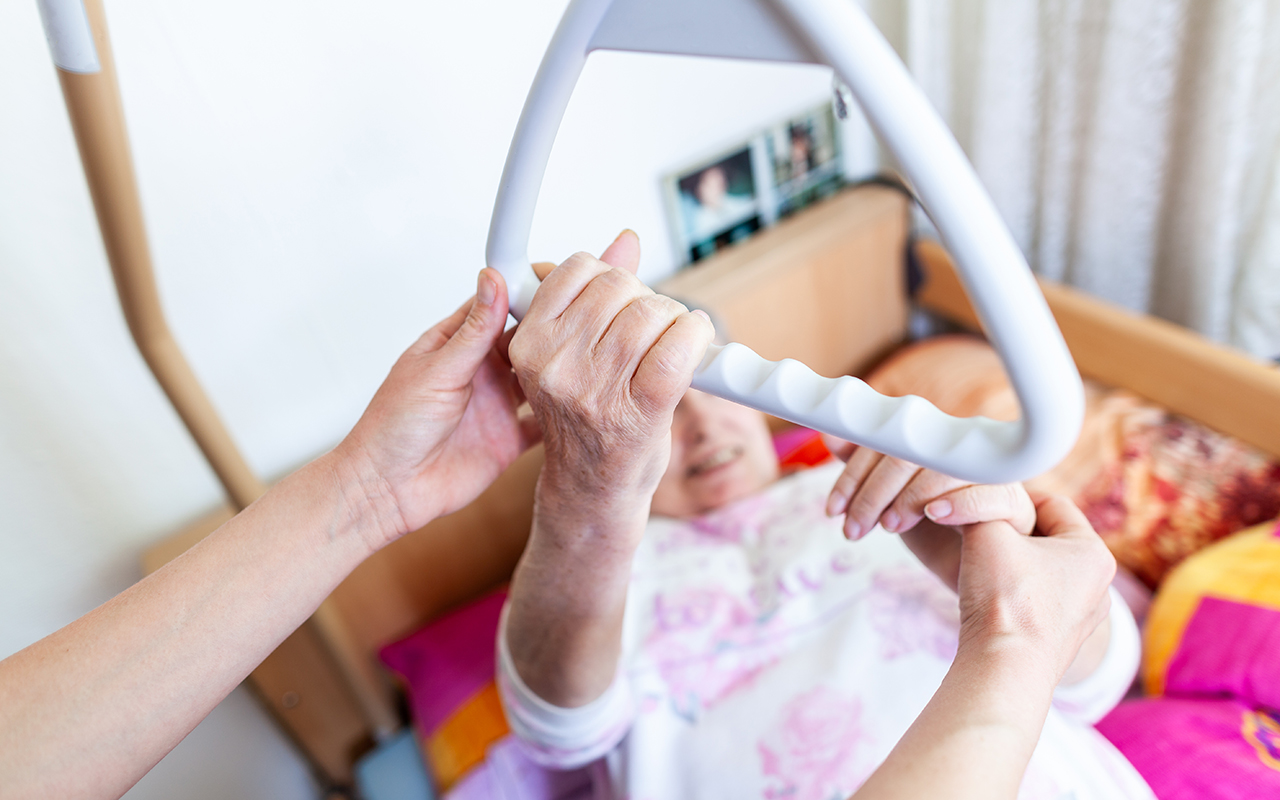Share
In-home care has grown in popularity among families because it allows their loved ones to remain at home rather than move into assisted-living communities. This private care gives them peace of mind that their loved ones are safe and looked after in a place with which they’re familiar.
However, it’s not always easy for aging adults to recognize that they can no longer live completely independent lives. If you face resistance on this matter, use these tips to help your loved ones adjust to the idea and the new living situation.
1. Be Patient and Compassionate Regarding Your Loved Ones’ Emotions
It’s only natural for aging adults to resist change because they’ve been living on their own for so long. They’re proud to be self-sufficient, so it’s a challenge not to remain independent when their health begins to decline. As a result, they may be stubborn and refuse to acknowledge that they need assistance.
Try to understand their feelings and point of view. They likely feel like they’re losing control of their lives. Transitioning to in-home care is a major lifestyle adjustment, but you can make the process easier with compassion and patience.
2. Address Your Loved Ones’ Fears
While it’s frustrating when aging adults don’t seem to want help when they obviously need it, their resistance could be related to fears that you can address. For example, they might worry that accepting in-home care is the first step toward moving into a nursing home. However, you can assure them that the intent is to delay or even prevent such a move.
3. Include Your Loved Ones in the Decision
When your loved ones accept in-home care, including them in interviewing and choosing the caregiver is very important. It gives them some control over their lifestyles. In that same spirit, you can let them choose when the caregiver arrives and leaves.
Emphasize, though, that it’s essential for their health to have the caregiver there when they’re unable to do certain tasks on their own. If they have trouble bathing, dressing, cooking or shopping, for instance, the caregiver should be there to assist with those tasks.
4. Continue to Visit Your Loved Ones Regularly
Even though your loved ones will be in the care of a professional, it’s important that you continue to visit them. The last thing that you want is for them to feel like you cast them aside because you didn’t want to or couldn’t care for them.
Although they have someone to keep them company during the day, that companionship doesn’t replace the presence of family. If you visited them at least once a week before the transition to at-home care, you should maintain those visits after the transition. Also, you can lift their spirits by doing something special every once in a while, such as making them a photo album or giving them flowers.
Get Help With the Transition
Sometimes, it’s too difficult for family members to help their loved ones adjust to in-home care. If you’re in that position, Caring Home Care can provide support. Our registry of certified professionals makes finding the perfect caregiver easier and less stressful than looking for one on your own. We offer a range of services for every need as well.
How Caregivers Can Reduce Injury While Assisting Seniors Providing daily care for seniors is meaningful work. It can also be physically demanding. Many caregiver injuries happen during lifting, transferring, or repositioning seniors. These injuries are often preventable when proper techniques are used. Learning caregiver injury prevention strategies protects both the caregiver and the senior. It
Why Professional Home Care Is Safer Than Family Only Care Caring for an aging loved one is deeply personal. Many families step in with the best intentions. However, as care needs increase, family only caregiving can become overwhelming and risky. This is where professional home care plays a critical role. Professional caregivers are trained, experienced,
Connecting During the Thanksgiving Holiday: How to Support Your Elder Relatives The Thanksgiving holiday is a time filled with warmth, gratitude, and meaningful family traditions. However, for many older adults, it can also be a period of loneliness or emotional distance. This is especially true for seniors who live alone, have limited mobility, or are
Transition to In-Home Care: Helping Seniors Adjust Comfortably to Elderly Care Services Understanding the In-Home Care Transition The decision to begin in-home care is a big step for both seniors and their families. It often marks the start of a new chapter—one focused on safety, comfort, and support. However, the in-home care transition can bring
Need A Caregiver? Fill Out Form Below
With our competitive rates, we make receiving in-home care affordable regardless of whether you’re using your insurance or paying out of pocket.






